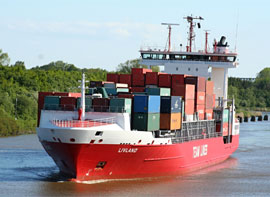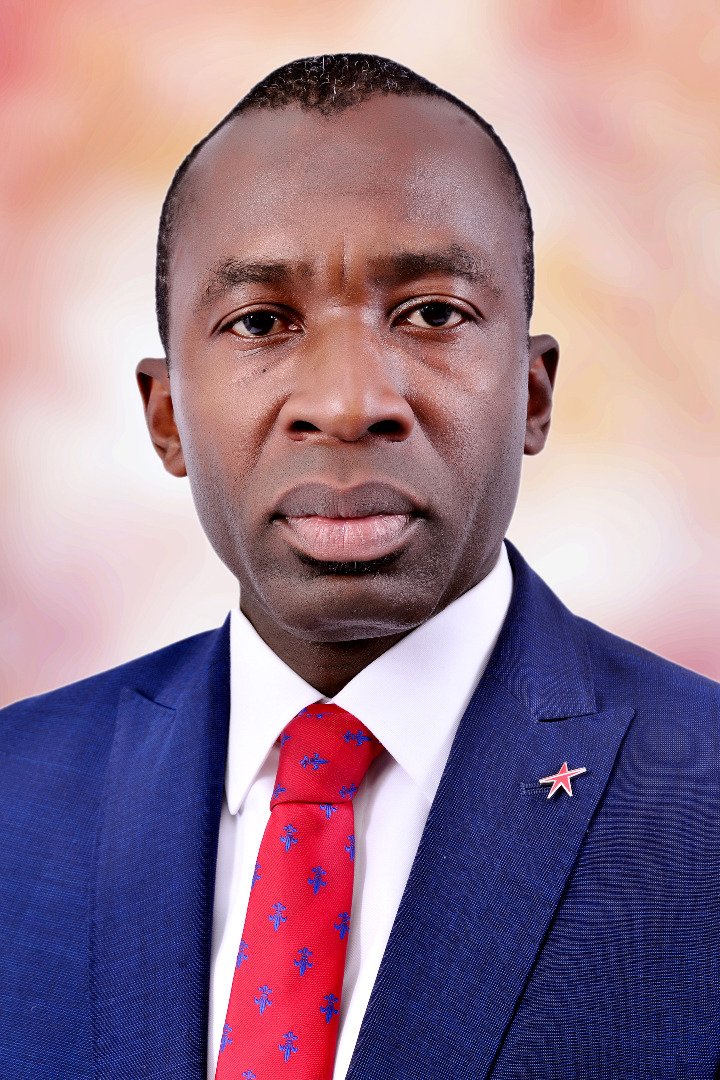
The Group Managing Director of Red Star Express Plc, Dr. Olusola Obabori, speaks on how the company’s investment in SMEs, perishable goods, will empower farmers. Chinedu Eze brings the excerpts:
How are you supporting small and medium enterprises (SMEs) and how do you intend to expand Pre-authorised Payments (PAP) system?
The support for SMEs is already ongoing. We started this project in 2018 and it has been running since then. An SME is a company or an organisation that does not have more than between N5 million to N50 million income. If you check what the United Nations said about SMEs. If you now talk about the micro; you have the micro and the small and the medium, you have LSME. These ones are even smaller. SMEs are bigger, because sometimes they could have an income about N50 million. That is how government classifies them.
But if you go down to the micro, somebody has a shop, he has an income of N25, 000 and government has helped us to classify such people in terms of their tax bracket. These are people who are selling on Instagram, who are selling on different platforms. They don’t even have a shop; some operate from home. Now because we have access to database of a lot of these people through various platforms, we work with SMEDAN (Small and Medium Enterprises Development Agency of Nigeria). We invited SMEDAN and they gave us a list of these people. We invited them to a session some time ago at Welcome Centre, Lagos and we did a lot of exposition on what they require on their businesses effectively. What they require to run a business, how do you incorporate a business and what type of training do you require to manage your goods, to do your inventory, to do your operation.
These are little, little things that you may think for people like you they don’t matter but for people who run small businesses they require a lot of training. If you have 100,000 to run a business but you don’t have the training and then in a short time the money is lost. So part of what it takes is to train to those people, it is to speak to them from time to time through sessions, and seminars. And we also work with other agencies. Nigerian Breweries had a programme like that, we as Red Star we sponsor those programmes and we go there. Now once we have harvested those data, we are going to bring them to Red Star fold and tell them this is an avenue for you, you can carry your shipment from Lagos to Kano at X amount of money and there is a substantial discount on it. We issue them cards that enable them to ship across our various platforms at almost 50 per cent of the cost that it would have cost somebody else.
So those are the some of the things that we have done with the SMEs. And today I am sure we have more than 3000 of them on our platform working with our e-commerce department. And we are hoping to do a lot more in that area. Now, the major area of our focus again under that, if you look at the agro sector, agric sector is a very important part where you find a lot of peasant workers. Thankfully, I chaired the committee of agric and export forum for Nigerian Industry of Commerce. This is where you will find a lot of these people who do one little job on agricultural product or the other. A lot of them don’t know how to ship them out of the country. They don’t even know what to do. They don’t know what certification they require. They don’t know how to go through NAFDAC, SON (Standard Organisation of Nigeria), Quarantine. At Red Star, we have experts in the house who have done this over the years. All we need is to handover these people to our team and they help them to go through the documentation, once they are certified, we help them to export whatever they are exporting out of the country. So those are some of our own effort internally to support the MSMEs.
You spoke about your interest in perishable goods. I will like to know how far you have gone in developing it?
I will say that we are a major player in the perishable goods sector, because when nobody wanted to play in that sector, we went there. We knew we will not make a lot of money from it but we went there to help the industry to come up and to help Nigeria. The margin that we make as a matter of fact, the truth is that we are not making anything from the perishable goods. What is the cost of producing tomato? What is the cost of producing it from the farm? If you put a brand new truck to move those things, you cannot recover the money you spent on the brand new truck from the tomato.
We are a specialist company in high value goods, no matter the weight of the goods, it must move very quickly; that is our core expertise. And you have contract papers; you have equipment that must come from where it is manufactured to Lagos. That is the area of our core competence. But if you come to the perishable side of things, for example tomato, it is a big weight. Tomato that you have not taken out of the water, it is heavy weight; how can you charge for it? What is the value of the tomato? So if you now put that in a container, then you put in a truck how much can you get from it? It is not even equal to the cost of some very expensive equipment that the manufacturing concerns require to work. However, we are in that space so that we can help our country and also add value.

In the future when that space gets better we will be the first to profit. We have done our investment in cold chain trucks now, and in the last three, four years, you will see some of our trucks on the road, written Red Star cargo, cold chain services. They are brand new trucks; we bought them. Have we made money from them yet? No. But for those who have the power to move vaccines, which is also now premium, we are working for them. There are foreign donor agencies from America who are moving medicaments that are temperature controlled around the country that is now our business. We are working in that space to ensure that we can circulate. So we have invested in cold chain. When I told you about our warehouse at the airport, there is a compartment in that warehouse that is for cold chain strictly. So if you are bringing agro products, you are bringing pharmaceuticals, they will be stored there before they come into the country. So that is what we have done in that space and there is a lot more that we can do.
Despite the fact that you have a very good warehouse in Nigeria,
your company still face the challenge of moving goods to other countries.
Why is it so?
This is a good question and it is a question that has been there for a long time. I will say that Apapa is work in progress. What we have now is slightly better than what we have before. Previously it was chaos and madness in the past but things have improved. And when things improve and we see that it has improved we must say it so that we don’t discourage those who are working on those projects.
Some of them are private sector organisations. Remember that this Apapa road was a total mess, where people will park from almost DHL office there up to Apapa. But Dangote has come to fix that road, at least we see Dangote people working there and that road is smooth now. We can drive freely to Apapa now. However, the process of getting containers to go in or trailers to come out still has its own challenges. I remember that there was a time a year or two ago, we could take a badge (is a boat that you can put a container, and then we use the water ways to go into Apapa to go and carry things) it was very expensive.
Imagine if I have to pay N60, 000 per trailer and put it on a badge, so you have four trailers on that badge, that is N240, 000. And then you put that badge on the waterways and then it enters into Apapa, we discharge, it goes to load and come back and then we ferry it to Ikorodu. It comes down and then they start travelling to wherever they are going. So look at the amount of waste. So when somebody said the cost of moving goodswithin Nigeria is more expensive than from China to Lagos. That shows where the money is going. Now, that has subsided a bit, we don’t have to use those badges any more.
There is a call up system that was created some time ago. It was an app. It had a problem at some point in time but I think that also has been fixed. So I will say that there is relative sanity in Apapa but it can be improved in the course of time. Apart from the core part of Apapa where they are still doing some roadwork, we have those challenges there. I remember one day we went to a meeting to see a customs agent; we came down from our car and walked into Apapa. By the time we were done from the meeting, two, the vehicle that we took us from the office was still in traffic, we had to go and find them in traffic. So if you run your life like that every day, you can imagine what happens to you, psychologically you can go crazy. And the trucks will be there and you can’t come out in seven or eight days.
So when they come out from there they charge you any amount of money they want to charge you because time has been spent in trying to get in and out of Apapa. But I will say for now, there is relative improvement over what it used to be right there in Apapa. We are hoping that government can improve in terms of the call up system that they created.
On agencies of government at the port, we have complained about this in the past. So at the port you have National Drug Law Enforcement Agency (NDLEA) there, Customs, Department of State Service (DSS), Anti Bomb squad, Quarantine services, SON, everybody is there, the police is also there and they are harassing everybody. So if you check what happens in other climes, maybe at best you have two.

Customs is also police of government to collect revenue and if somebody is evading, the marine police there will make sure that people don’t do smuggling via water or coming through the water to come and harass people.
So I think there is a lot of work to be done. We have complained about this to the government in the past and have we seen much difference? I am not very sure. So if you have perishable goods, remember when people are carrying yam, the yam will rot in Apapa before it goes out of the country, which is a disincentive in itself.
But for us who do export via air, for example, we will go through those agencies but we will fly out, let’s say at a maximum cost. So what we should have been doing by sea, we try to take them by air. When it lands in that other country our cost of arrival there is higher that the growing market there. That is why we are not competitive; you see the challenge we face? So if we are going to be competitive, the government needs to work on what happens at the port so that our cost of shipping out is minimised and also reduce some of the agencies who maybe charging fees on the exports that are being processed there.






